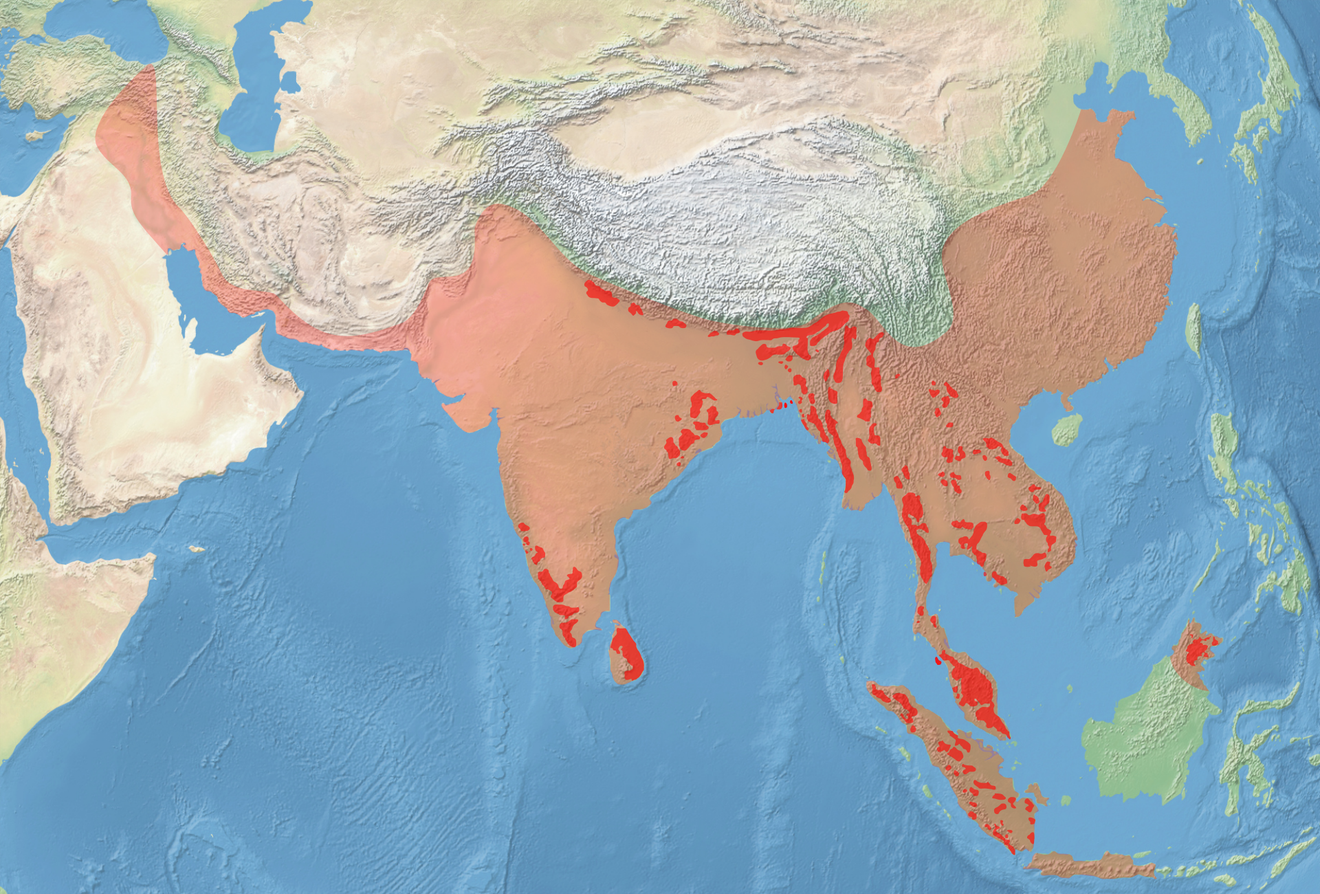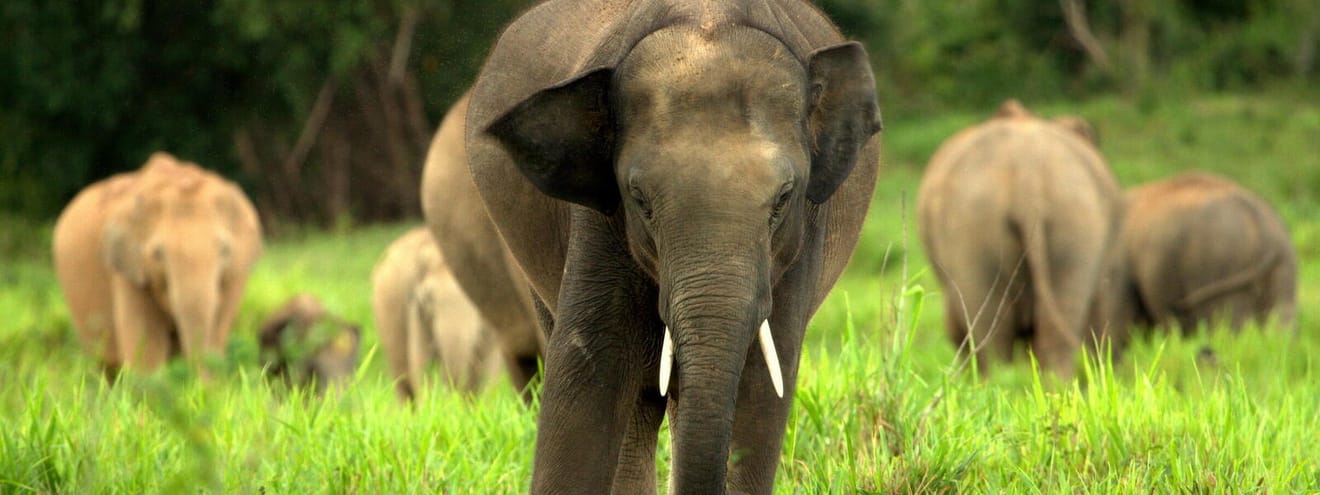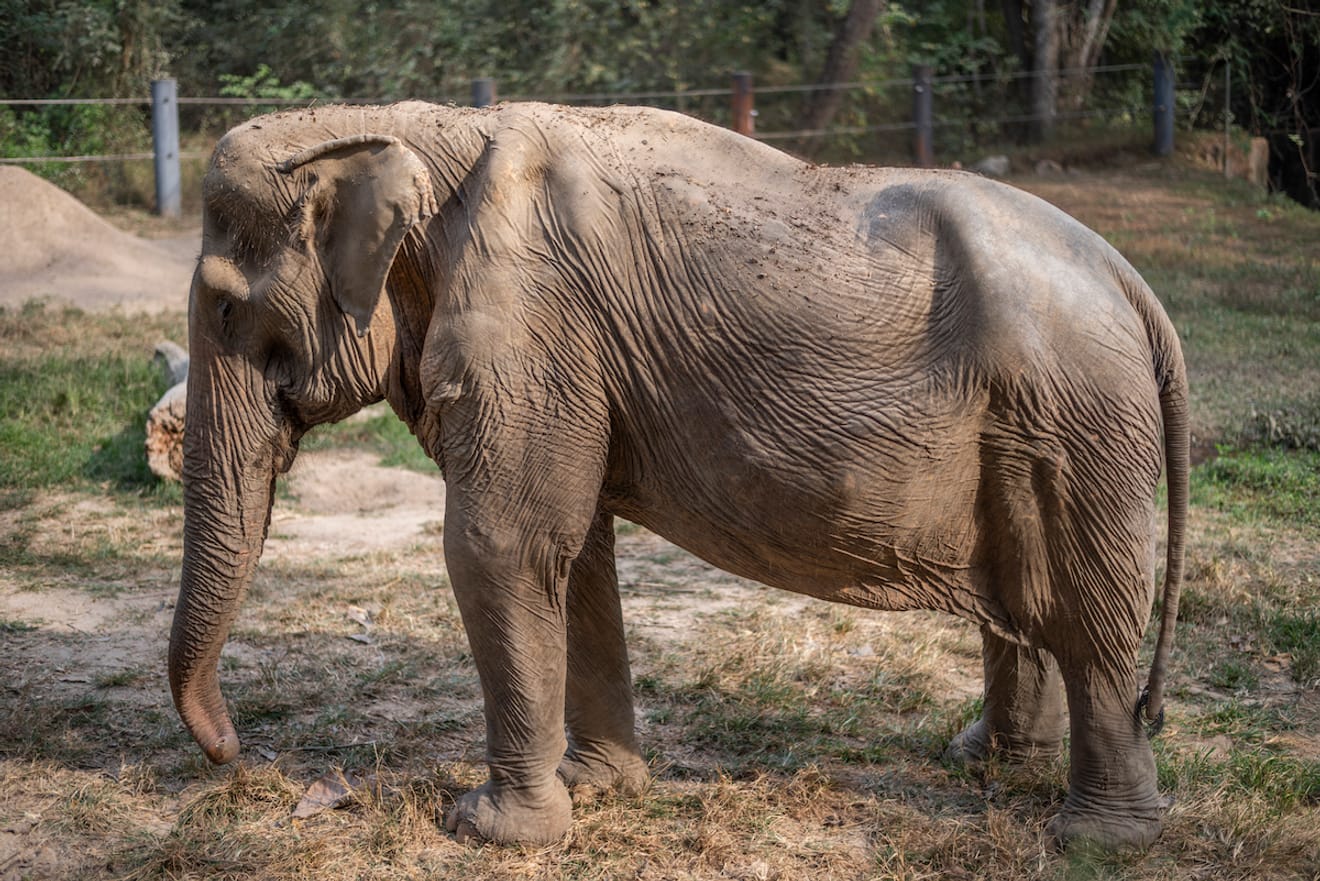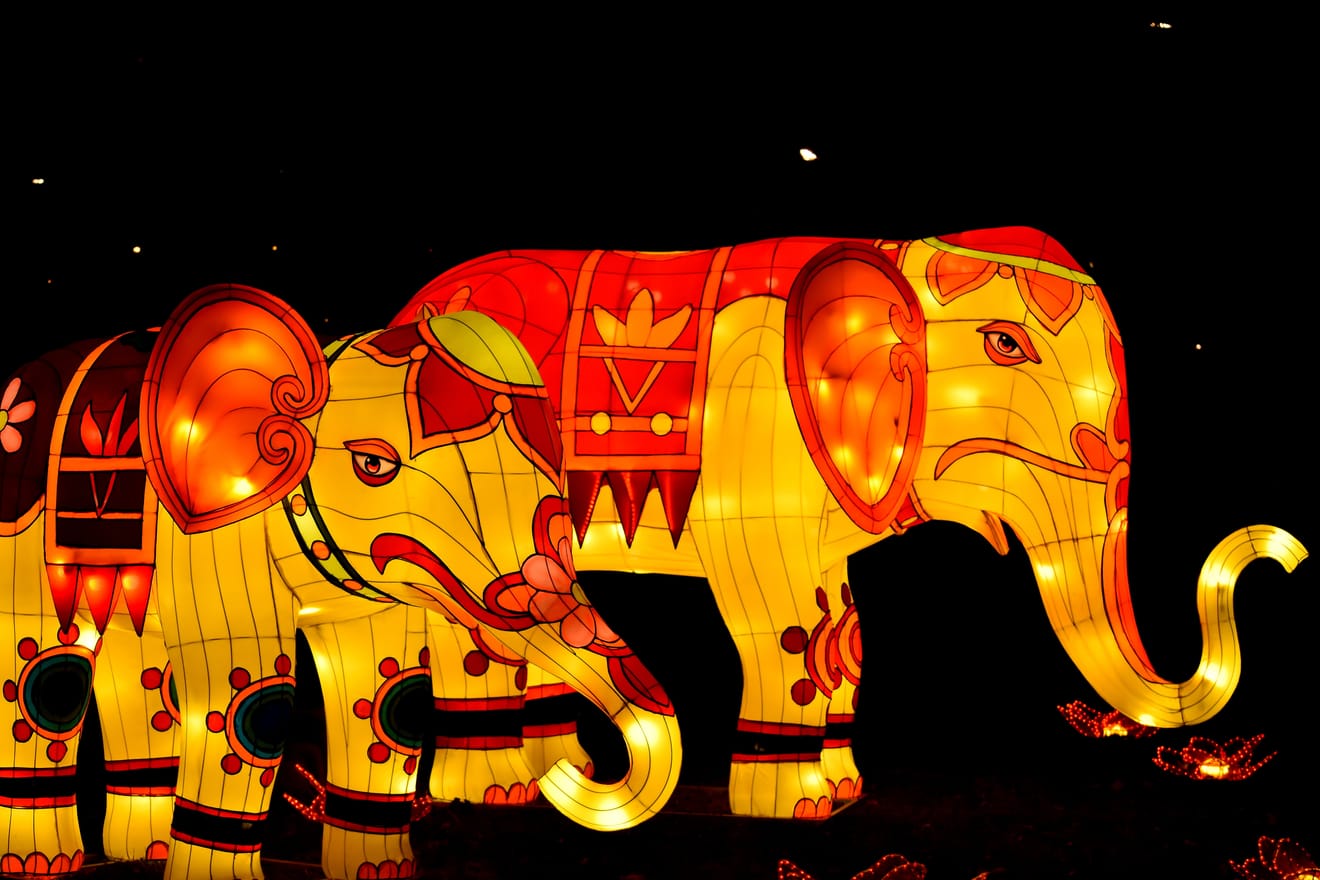Subject
- #Endangered Species
- #Elephant
- #Environmental Destruction
- #Climate Crisis
- #Conservation Efforts
Created: 2024-02-05
Created: 2024-02-05 09:29
If you've traveled through Southeast Asia, you're probably familiar with elephant tourism. Elephants are easily seen in tourist destinations and zoos. However, elephants are reportedly facing extinction.

The IUCN Red List classifies the Asian elephant as an endangered species (EN). This means it could become extinct in the near future. It is estimated that there are currently about 50,000 Asian elephants, and their numbers are steadily decreasing.

By © Sémhur / Wikimedia Commons, CC BY-SA 4.0, https://commons.wikimedia.org/w/index.php?curid=12581691
The above photo shows the changes in the Asian elephant's habitat. In the past, Asian elephants were widely distributed in the lighter areas, but now they only inhabit the darker areas. The decline in Asian elephant habitat has accelerated since the 1700s. It is reported that a whopping 3.3 million square kilometers have been lost. As colonization began in these areas, development took place, leading to a decrease in their habitat.

WWF
Habitat loss is a problem, but an even greater threat to Asian elephants is ivory trading. Elephant ivory is often processed into jewelry and other items for sale. It is said that ivory can sell for over 2 million won per kilogram. This has led to an increase in poachers targeting elephants for their ivory. Illegal ivory trading has been a problem since the past, leading to a ban on international ivory trade in 1989. However, poachers have not stopped trading ivory. Nowadays, elephant ivory is traded online as well.
Elephant tusks vary in length, and poachers have traditionally hunted those with strong and long tusks. As a result, elephants with strong tusks have been killed in large numbers, leading to an increase in the number of elephants born without tusks. In the past, the number of tuskless elephants was around 4%, but now it has risen to 30%. Additionally, even elephants born with tusks are more likely to have short tusks rather than strong and long ones. This research result suggests the vast scale of human poaching. Not only ivory but also elephant skin and tail hair are being traded, making it not an exaggeration to say that humans are the main predator of elephants.

WFFT
Elephant tours, where tourists ride on elephants through tourist destinations, have become a staple of tourism in Thailand. If managed well, the tourism industry involving elephants can be a way to prevent their extinction. However, if not properly managed, it can easily put elephants at risk. Last year, a shocking photo of an elephant that had been carrying tourists for 25 years was released in Thailand. The sight of the elephant with its spine sunken was shocking, but the fact that the owner abandoned the elephant after it could no longer carry tourists was even more shocking. The elephant is reportedly being protected by the Wildlife Friends of Thailand Foundation.
Elephants are a prime example of large animals. Since they are much larger than humans, having them carry people might seem harmless. However, constant weight on their backs can inevitably cause stress, no matter how large they are.

PIXNIO
Elephants are considered very sacred animals in Hinduism. One of the Hindu gods, 'Ganesh', has the form of a human with an elephant's head. They also dress elephants in ornate fabrics and parade them.
Perhaps elephants are very familiar animals to humans. Elephants symbolize good fortune, but are we only receiving good fortune from them without giving anything back? It's time for us to return the favor to the elephants who have been sacrificed for human leisure and economic gain.
Comments0